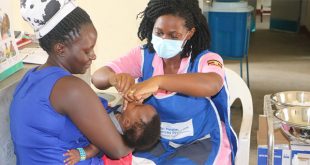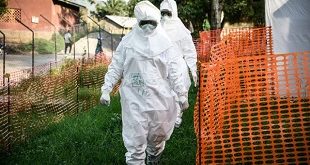
Washington, United States | AFP | Commonly used blood pressure medicines do not heighten susceptibility to COVID-19 infection, or increase the risk of becoming seriously ill with the disease, three major studies said Friday, positive news for the millions of people who take them.
The research primarily concerned angiotensin-converting–enzyme (ACE) inhibitors and angiotensin-receptor blockers (ARBs), which are also given to diabetes patients to help protect their kidneys.
ACE inhibitors include the likes of ramipril, lisinopril and other drugs ending in -pril; while ARBs include valsartan and losartan, and generally end in -sartan.
There had been concern arising from animal studies that these medicines might increase the body’s levels of a protein called ACE2, which the coronavirus latches on to when it invades human cells, thus increasing people’s vulnerability to the disease.
Confusing matters further, there were also contradictory animal studies that showed having more ACE2 proteins might lessen an inflammatory reaction in lungs to COVID-19, a beneficial effect.
The three new studies were published in the New England Journal of Medicine (NEJM).
Each involved reviewing the records of thousands of people either on or not on the medicines and seeing if they got infected and how the disease progressed.
They then used statistical methods to control for other factors like underlying health conditions that might make people more susceptible to infection and to serious COVID-19.
“We saw no difference in the likelihood of a positive test with ACE inhibitors and with angiotensin receptor blockers,” Harmony Reynolds of the NYU Grossman School of Medicine, who led one of the studies that involved about 12,600 people, told AFP.
The studies were “observational,” meaning the researchers observed the effect of a risk factor.
This type of investigation is always considered weaker than “experimental” where an intervention is introduced along with a control, which leaves less to chance.
The authors of an accompanying editorial in the NEJM acknowledged this inherent limitation, but added: “We find it reassuring that three studies in different populations and with different designs arrive at the consistent message.”
Reynolds said the findings were relieving, because she had been getting questions from worried patients who had read press reports and were asking if they should stop their medicines.
“I’m very happy to be able to tell patients that they should continue their blood pressure medications,” she said.
This is especially important given that lockdown life itself appears to be causing high blood pressure, “maybe from stress or less exercise or eating differently,” she added.
Mandeep Mehra, the medical director at Brigham and Women’s Hospital (BWH) Heart and Vascular Center who led another of the studies, said another fundamental question had been answered.
Early on in the pandemic, when it became clear that people with cardiovascular conditions were more likely to get severe COVID-19, scientists wondered: Was it heart disease that was the risk factor, or the medicine used to control it?
The new research settles the debate firmly in favor of the former, he said.
“It tells you beyond a shadow of a doubt that COVID-19 somehow interacts with the cardiovascular system in a pretty negative way,” said Mehra.
– Potential benefit? –
Mehra’s study, which looked at almost 9,000 patients across 11 countries, also tied the use of blood pressure medicines to a lower risk of death from COVID-19 — a finding not shared by the other two studies.
“The same drugs that appear to have life saving benefits in patients with cardiovascular illness also appear to show us a signal of benefit in patients who are in the throes of COVID-19,” he said.
He added it was unclear why this was the case — whether it was because the medicines were helping the heart which in turn made it more resilient to the effects of the virus, or whether they were doing something else.
“What we can tell you is that, if you’re on a statin or an ACE inhibitor, by golly, please continue it,” added Mehra.
Nearly half of adults in the United States, or 108 million people, have hypertension, according to official figures.
 The Independent Uganda: You get the Truth we Pay the Price
The Independent Uganda: You get the Truth we Pay the Price



